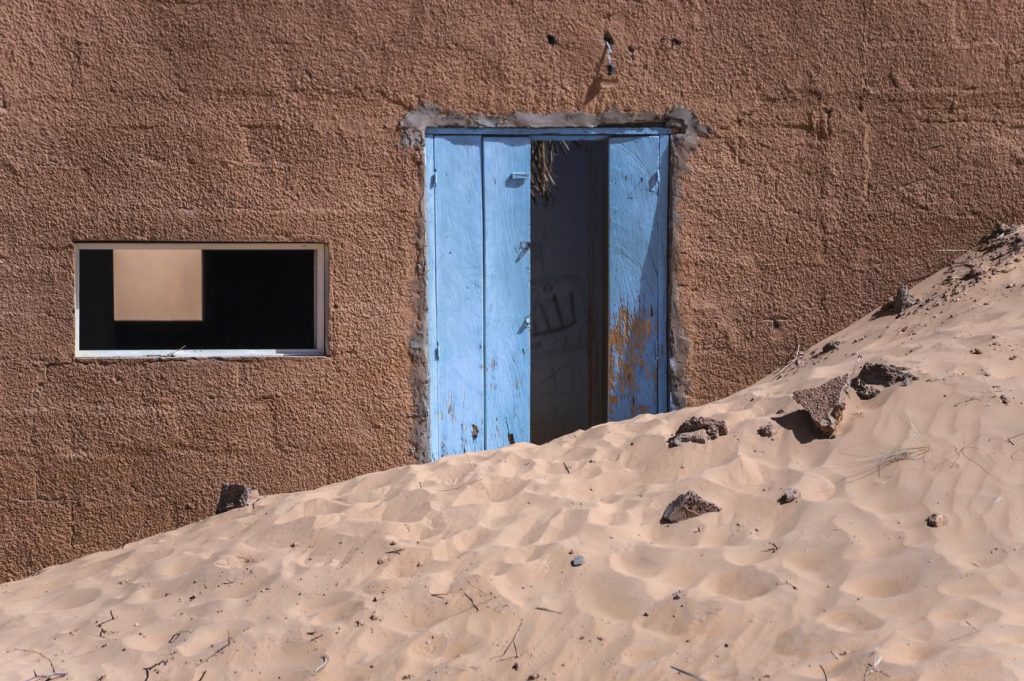CHINGUETTI, Mauritania (AP) — For centuries, the ancient city of Chinguetti, located in Mauritania, has served as a sanctuary for poets, scholars, and theologians, functioning as a critical trans-Saharan trading post. It boasts more than a dozen libraries that house thousands of invaluable manuscripts, some of which are among the oldest Quranic texts in West Africa. Unfortunately, this historical gem now faces an existential threat due to the encroaching Sahara Desert.
Chinguetti, which dates back to the 8th century, is experiencing severe environmental challenges as climate change leads to hotter and drier conditions. Increased sandstorms are depositing significant amounts of sand onto the streets and into homes, effectively burying parts of the city. Residents are becoming increasingly resigned to the reality of living alongside these shifting sands, believing that the desert is their inescapable fate.
As part of Mauritania's four UNESCO World Heritage sites, Chinguetti is critical to Islamic history and culture. The mud mortar homes, mosques, and libraries here encapsulate a wealth of knowledge ranging from law to mathematics. The local community leader, Melainine Med El Wely, has described the situation as watching a disaster unfold slowly. He recalls how the sands have converted areas he once knew as neighborhoods into vast stretches of desert.
Research indicates that the rates of desertification are accelerating, with deserts like the Sahara expanding at unprecedented levels. Experts are warning that what was once deemed a worst-case scenario may soon become a reality. Data from the World Bank reveals that Africa, despite contributing minimally to global fossil fuel emissions, has seen pronounced impacts from climate change, with Chinguetti being no exception. More than three-quarters of the Earth has become drier in recent decades, endangering ecosystems and human livelihoods.
Tree-planting initiatives are underway, but so far, their effectiveness at curbing desert encroachment remains uncertain. Mauritania has only 0.5% of its land considered arable, making agriculture a dire concern for its residents. The situation has become increasingly dire for date farmers like 50-year-old Salima Ould Salem, who must now transport water from external sources to keep their crops alive. Salem's neighborhood is slowly emptying as families abandon their homes, which are now engulfed by advancing sands.
Historically, acacia, gum, and palm trees provided vital protection against shifting dunes. However, these trees have died due to water scarcity or have been cut down for firewood, exacerbating the community's vulnerability to sandstorms. Retired teacher Mohamed Lemine Bahane observes that while sandstorms have always existed, their frequency and intensity have dramatically increased. Residents rely on mules and carts to clear the accumulating sands, often constructing walls atop their homes as a makeshift barrier.
Chinguetti's annual rainfall has drastically decreased to an average of only 2.5 centimeters (one inch) over the past decade. This decline in moisture is a driving factor in the local plant die-off, which, in turn, allows progress to be made by sandy waves. These changes are forcing herders to resort to cutting down even more date palm trees, disrupting the local ecosystem further and increasing public health risks associated with excessive dust exposure.
In light of these challenges, Bahane advocates for creating "green belts" around Chinguetti and in its neighborhoods as a defensive measure against the encroaching desert. While tree-planting projects have been proposed by various local and international organizations, progress remains slow, as it may take years for new vegetation to establish roots deep enough to access groundwater.
Despite the prevalent belief that desertification is inevitable, El Wely emphasizes that there is still a conviction within the community that resistance is possible. Efforts are ongoing to mobilize resources and support for initiatives to protect this historically and culturally significant location, with hopes of stemming the inevitable tide encroaching upon their homes.










